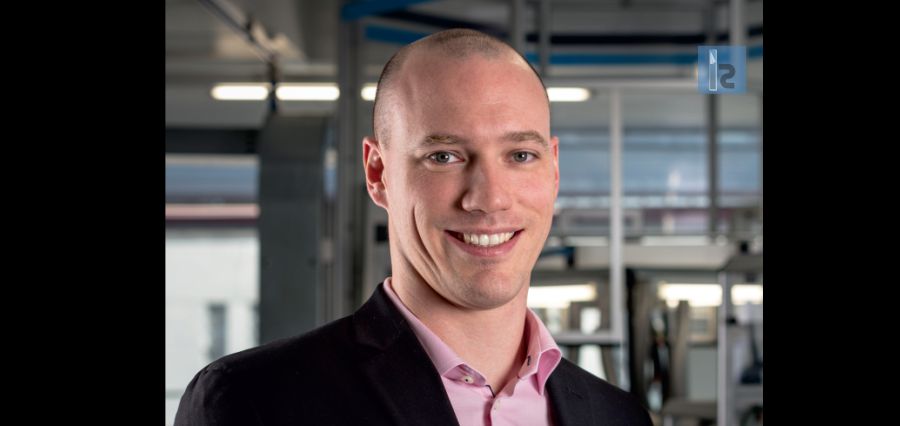In 2009, more than 100 million Europeans suffered from allergies. Ironically, the sharp rise in allergy-related conditions of recent decades can be traced back to improved hygiene. European public health systems have identified this surge as one of the main factors that put pressure on their infrastructure.
In the biomedical field, the demand for reliable, fast, and inexpensive products to diagnose allergies continued to grow. With this finding, Dr. Nicolas Durand and Dr. Iwan Märki launched Abionic.
They developed an advanced diagnostic platform that can quickly obtain a patient’s personalized allergy profile. This in vitro test, which has been designed to be simple, reliable and cost-efficient, is an alternative to expensive blood tests performed in laboratories that are currently used to identify allergies.
Since its establishment, Abionic has used these highly advanced technologies with a vision to improve healthcare and enhance the wellbeing of the patient.
Committed to Medical Innovation
In Vitro Diagnostics (IVDs) are medical devices and accessories used to perform tests on samples, e.g., blood, urine and tissue that have been taken from the human body, to detect infections, diagnose medical conditions, and prevent diseases.
Abionic is committed to revolutionize the world of in vitro diagnostics with rapid universal point-of-care solutions. It develops and produces tests that have proven to be game-changers in each of their respective markets. Furthermore, they allow access to lab-quality blood analysis even where there is limited infrastructure in place.
Abionic utilizes the most advanced technology to supply healthcare professionals with a novel diagnostic tool. Its products, the abioSCOPE (the reader), abioGUIDE (the application for smartphones and tablets), and the tests containing nanofluidic sensors have been developed and are assembled by the company in Switzerland.
A Dynamic Young Leader
In 2010, Nicolas Durand, Founder and CEO of Abionic was fresh out of EPFL with a Ph.D. in nanotechnology when he launched Abionic in collaboration with Iwan Märki. The firm was set up to build on Durand’s doctoral research, which aimed to develop a nanofluid-based system that could speed up blood test diagnostics. Nicolas has also been involved in the development of resonating biosensors at Carnegie Mellon University (USA).
He is the winner of the 2006 Omega Award as well as more than 20 entrepreneurial awards, including the 2010 Young Entrepreneur Award. Nicolas has earned a private pilot’s license and was an astronaut candidate for the European Space Agency, on top of being an active infantry officer in the Swiss army.
Rapid and Reliable Point-of-care Solutions
Abionic takes established and trusted diagnostic principles to the point of care so patients can get their results immediately. Recently, the company announced the CE marking of the world’s most rapid test for the early diagnosis of sepsis and treatment management. With an annual death toll of more than 6,000,000, sepsis kills more people than breast cancer, prostate cancer, and AIDS combined. Many of these deaths could have been avoided if the condition had been diagnosed and treated earlier.
Abionic’s PSP test, which is an aid at diagnosis patients at risk of developing sepsis in real-time has the remarkable potential to save millions of lives.
The Pivotal Movement
Abionic has had its sights set on international expansion since 2012, when it obtained ISO 13485 certification, an important mark of credibility and a requirement to sell medical devices in the European Union.
The same year, the firm attracted its first investors with a Series ‘A’ financing round that brought CHF 3.5 million in cash. Two years later, the first healthcare professionals – mainly doctors – contacted the company to test their technology.
Abionic had to prove that its nanotechnology could perform as promised and did so at the first clinical trials which followed. That was closely followed by a Series ‘B’ financing round with Swiss and European entrepreneurs. By then, Abionic’s prototype had become a viable product; in 2016, the firm began demonstrating commercial traction by selling its devices to the market.
Recently, the Series ‘C’ round was closed to secure financing of clinical impact studies and the development of further tests. Today, the entire production chain is located in Switzerland and based in Lausanne. It has the capacity to produce up to one million test kits per year.
International Expansion
Abionic envisions revolutionizing the world of in vitro diagnostics with rapid universal point-of-care solutions powered with disruptive nanotechnology. To demonstrate the test’s medical and economic impact, the company currently carries out a large-scale clinical trial of its sepsis tests in fourteen sites across Europe.
Abionic aims to expand its business internationally and is working on the development of further innovative and impactful tests.
Source :-The 10 Most Innovative Healthcare Solution Providers 2018

Dr. Nicolas Durand | Founder & CEO | Abionic SA

